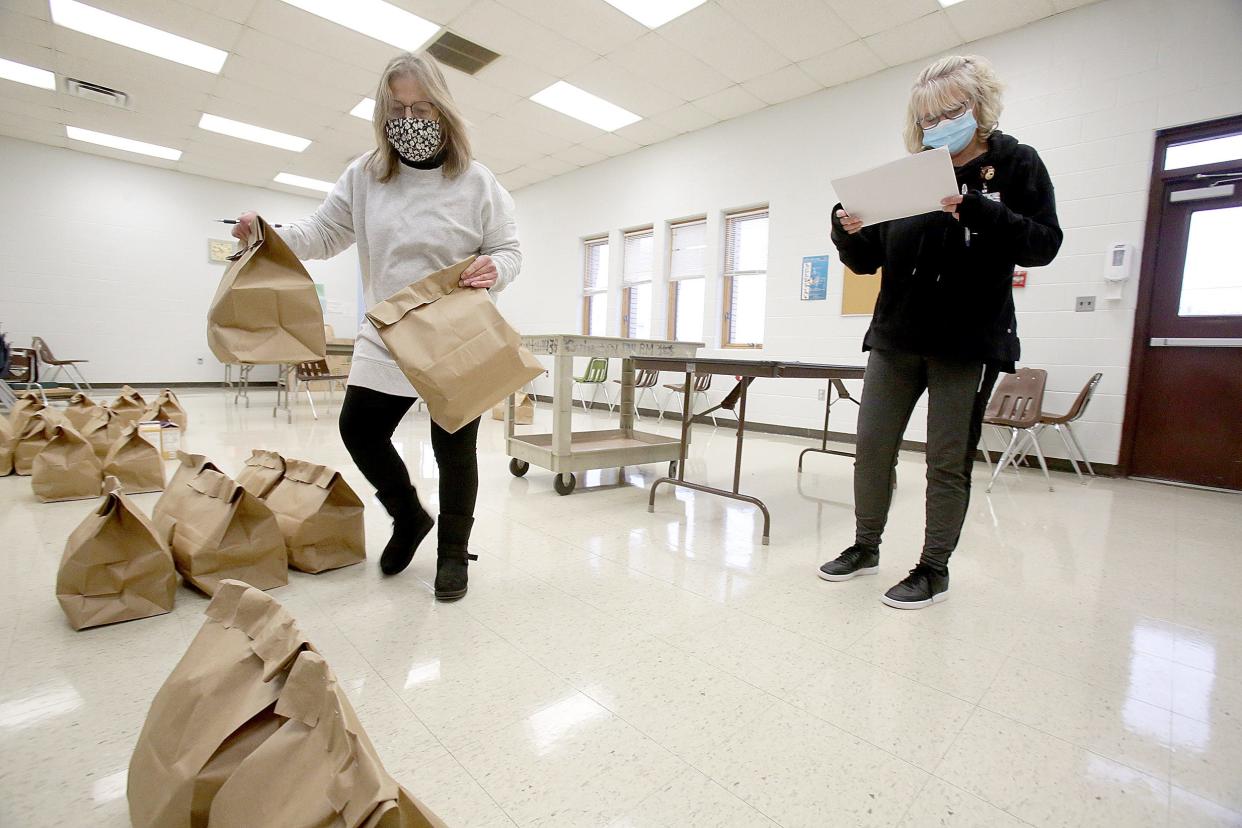Direct service provider shortage: Stark officials hope incentives will attract workers

Carla Hewitt knew it was her calling to work in disability care.
After more than 30 years in the field, she stays out of pure love.
"I had a family member with a (developmental disability), and it sort of sparked my interest in teaching and caring for people with disabilities," said Hewitt, who works at a services provider in North Canton.
Unlike Hewitt, many workers do not stay in disability care services for long. The direct service provider turnover rate in 2020 was 43.6%, according to a 2022 report by the ANCOR Foundation and United Cerebral Palsy.
The national labor crisis has left businesses in nearly every industry desperate for employees, and disability care is no exception. But instead of creating a new problem for the industry, the worker shortage has amplified an existing one. Many are struggling to fill direct service provider positions, and Stark County officials hope that new retention payments from the state will help attract more workers.
Stark County facing direct service provider shortage
Issues of high turnover have plagued the disability care industry for years.
"They've been in a workforce crisis before COVID even hit," said Lisa Parramore, communications manager for the Stark County Board of Developmental Disabilities.
The pay rate for direct support providers is determined primarily through the state's Medicaid long-term support and services programs. The average direct service provider makes between $12 and $12.50 an hour, according to the ANCOR Foundation and United Cerebral Palsy.
Parramore said the fixed funding structure has made it difficult for provider agencies to find workers, especially when many fast-food restaurants and other national chains are offering $14 an hour wages.
The Stark County Board of Developmental Disabilities has tried to help providers address this issue. The boots-on-the-ground work that direct support providers do is important to the agency's mission of providing programming to people with developmental disabilities, Parramore said.
"We work together in supporting people and so if they are struggling trying to find staff, that affects us, too," she said.
Hewitt said the industry's staffing shortage has made the job more stressful for many direct support professionals.
"They have to carry the brunt of extra work to give the quality of care that we require," she said.
Parramore said the high turnover rate in disability care can also be tough on people with developmental disabilities, particularly those who do well with structure and familiarity.
"And with that turnover, comes the invested time of training that employee, getting their certification. It has hit that provider community hard," she said.
The board has taken several measures to try and ease the burden on providers, including offering training programs and other incentives.
Bill Green, superintendent of the county's Board of Developmental Disabilities, said the agency created a financial incentive to help providers amid high gas prices.
"They are able to get from $750 to $6,000, and it's all depending on the number of people they transport," Green said.
He said developmental disability boards across the state have been working together to raise wages for service providers.
The Ohio Department of Developmental Disabilities announced last month that it received federal approval to move forward with a plan to help the direct support professional industry address its workforce shortage by providing retention incentives for support professionals.
"We will be able to provide a 6.5% (incentive) each quarter to our provider community," Green said.
With a federal match, county boards will generate roughly $143 million annually for retention payments for the direct service professional workforce, according to a news release from the Department of Developmental Disabilities.
Green said he hopes the new incentive will soften the burden on the provider community.
Reach Paige at 330-580-8577 or pmbennett@gannett.com, or on Twitter at @paigembenn.
This article originally appeared on The Repository: Stark County direct service providers hit by worker shortage

